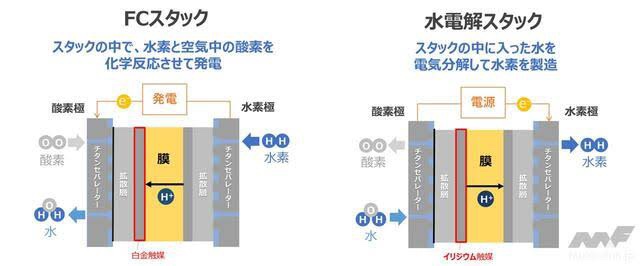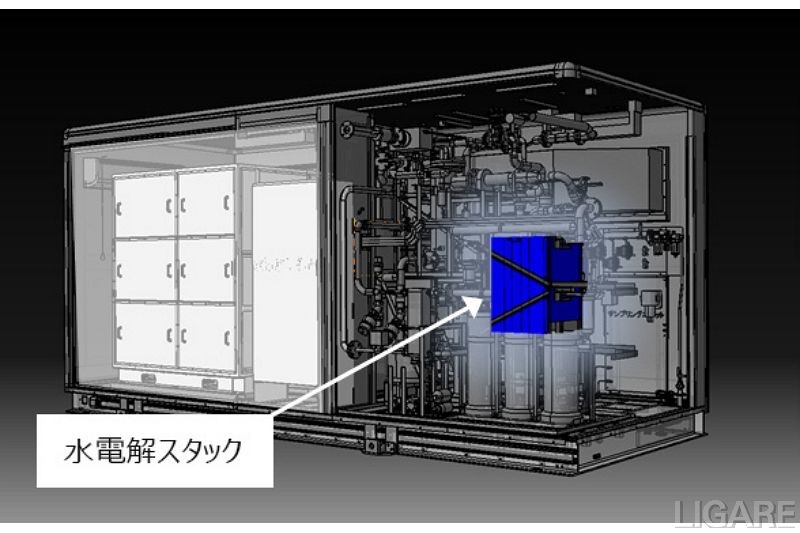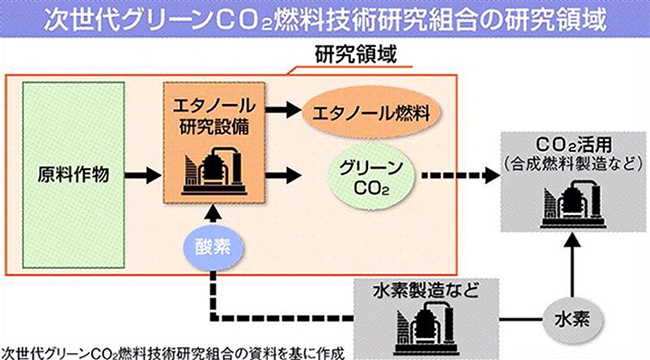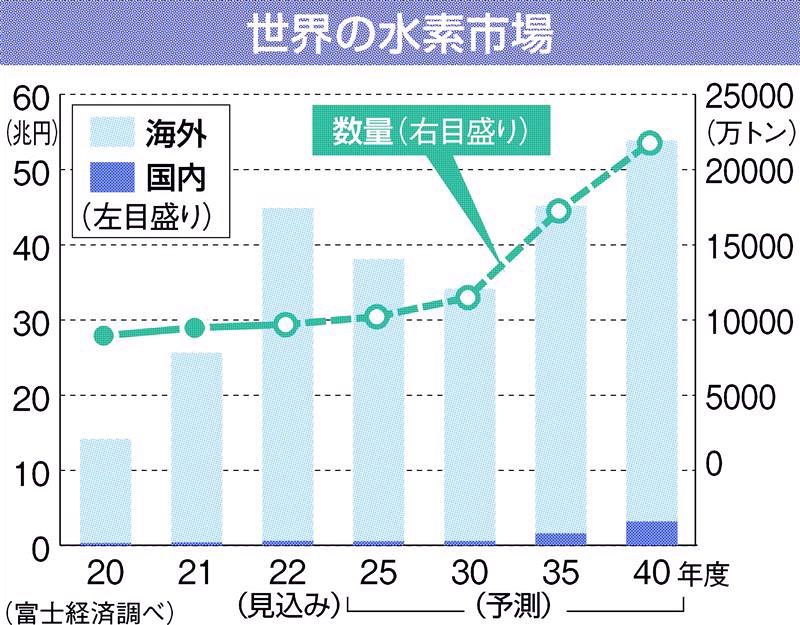
Water electrolyzer developed by Toyota installed at Denso Fukushima
Toyota’s decarbonization technology: production of water electrolyzers and bioethanol!
ーDevelopment of Hydrogen Production Equipment, Demonstration Test with Densoー
New Switch Report from the latest article
Toyota fuel solutions:
Toyota is stepping up its approach to the fuel field.
Developed hydrogen production equipment and started demonstration tests with Denso.
Even for bio-ethanol fuel, it will start working to establish a manufacturing process.

Diverting the parts of “Mirai”:
Share Toyota’s knowledge with society. The plan is to increase the number of options according to the local energy situation.
Toyota aims to diversify FC carbon technology.

Toyota’s Water Electrolyzer: Revolutionary System Using Mass Production Technology
NICT: Fukushima Renewable Energy Institute
This is a device that electrolyzes water to produce hydrogen. Demonstration tests began at Denso and Fukushima in March.
The biggest feature is that 90% of “MIRAI’s power generation stack and production process” is used in the water electrolysis section.
The cost is reduced by using mass-produced parts, such as the reliability and durability of being installed in actual vehicles.
Toyota: General Manager Yoshihiko Hamamura
“Manufacturing special parts just for this water electrolysis device” costs several times as much.
If the future parts are used, the production volume will increase and the price of the fuel cell will decrease.

Bioethanol fuel production technology
In July 2022, Toyota established the “Next Generation Green CO2 Fuel Technology Research Association” with ENEOS.
The theme is bioethanol fuel production. Seven automakers will also participate.
Established bioethanol production and sorghum cultivation bases in Okuma Town, Fukushima Prefecture.
Construction will begin in June this year, and operations will begin in October 2012.
Not only bioethanol but also synthetic fuel is made by reacting CO2 generated in the refining process with hydrogen.

Proposing the optimal powertrain:
Toyota will provide “optimal powertrains that match the energy situation of each country.”
For next-generation fuel vehicles other than EVs, the world’s fuel supply infrastructure is inadequate.
In fuel supply, it is necessary to establish “technology from manufacturing to cost reduction measures”.
“Establishment of water electrolysis equipment and bioethanol technology” is one part of this.
Newswitch by Nikkan Kogyo Shimbun